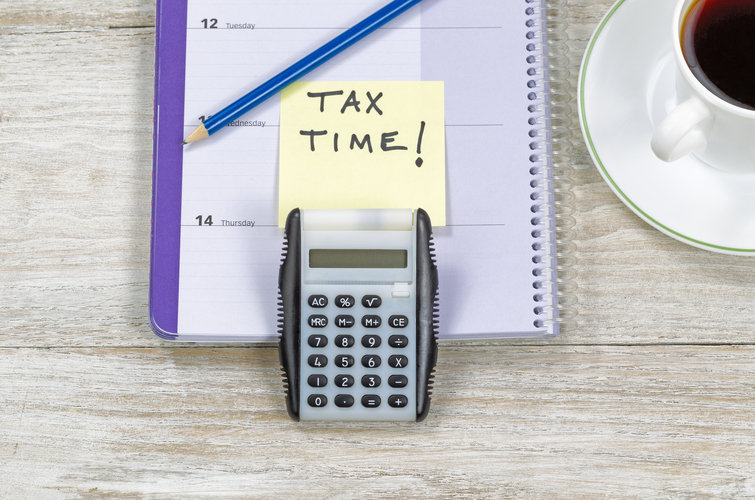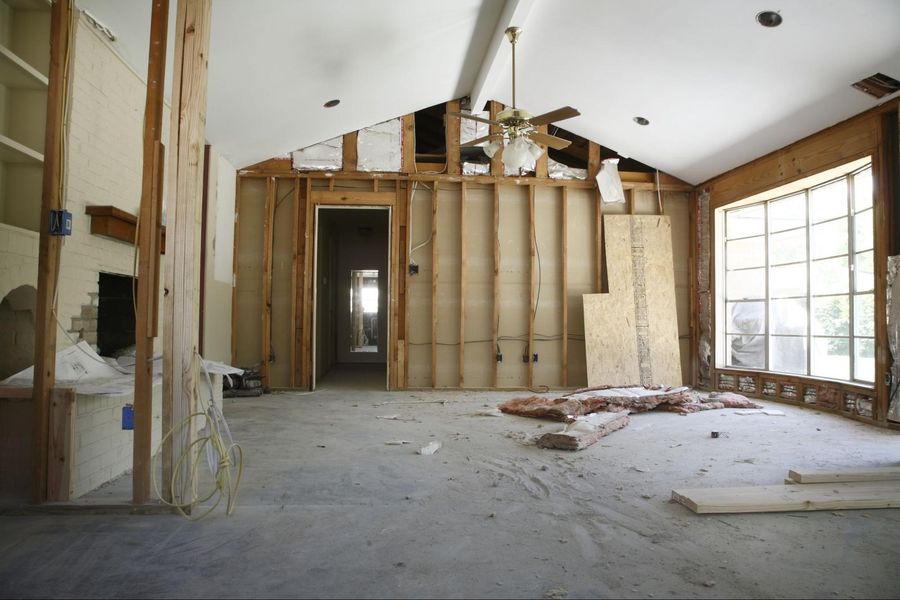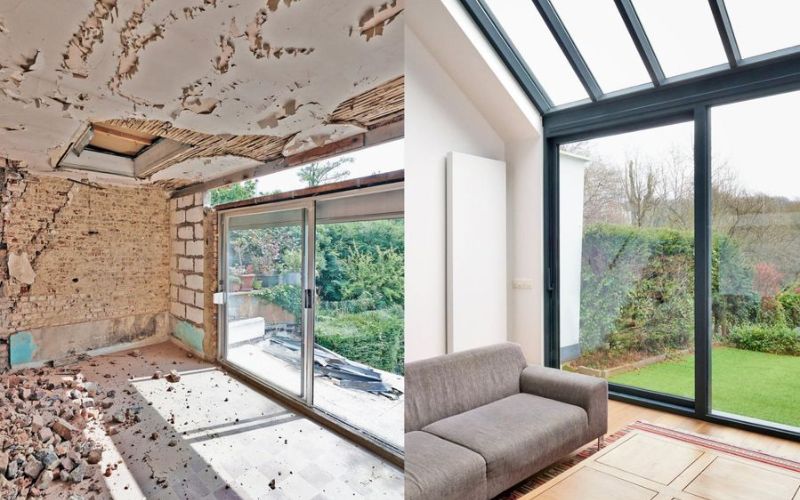Last Updated on October 24, 2023 by Helana Mulder
House flippers have grown in popularity over the last number of years because of various home renovation shows and a desire by many people to make quick profits.
Property flipping can be a profitable venture for . However, there are several financial considerations and pieces of tax advice to consider before embarking on this journey. In this blog, we will discuss some of the key tax and financial considerations that you should keep in mind if you’re hoping to start flipping a residential property.
What Is House Flipping?

House flipping is the process of buying a residential property, renovating it, and then selling it for a profit. The goal is to buy the property below market value, add value through renovations, and then sell it for a higher price.
One other strategy involves purchasing a fixer-upper and then reselling the residential property after renovating it with the goal of selling it for more than you spent on it. However, other experienced investors will complete the real estate transaction as fast as possible to limit the amount of time your capital is at risk.
Other times, investors may start flipping properties to generate rental income. Instead of selling, the investor will turn it into a rental property that can be used to pay off the mortgage interest and payments.
Property flipping requires a significant amount of capital, time, and effort. Investors may require loans from financial institutions, private lenders, or hard money lenders to fund the purchase and renovation of the property.
Flipping residential properties is a complex process that requires a lot of planning, time, and money. Investors need to have a firm understanding of the housing market and the potential value of the property. They must also have a solid business plan, a team of reliable contractors, and a contingency plan for unforeseen circumstances.
Tax Considerations For House Flippers

Home buyers and investors alike should understand the different implications that come with flipping residential real estate. Let’s break down a few of the taxes you need to consider and understand as a house flipper.
Capital Gains Tax
One of the most significant taxes in residential property flipping is the capital gains tax. This is the tax that is applied to the profit made on the sale of a capital asset, like stocks or property. When an investor completes sales transactions for more than the purchase price, it is considered capital gains and they are subject to income taxes.
As this income is fully taxable, failure to report a gain on the sale of a capital asset could result in a gross negligence penalty.
The tax rate for capital gains varies depending on how long the property was held before it was sold. If the property is held for less than a year, it is considered a short-term capital gain, and the tax rate is the same as the investor’s ordinary income tax rate. If the property is held for more than a year, it is considered a long-term capital gain, and the tax rate is typically lower.
Business Income Tax
In addition to the tax on capital gains, property investors who flip houses may also be subject to business income tax. If an investor flips properties frequently and with the intention of making a profit, it will likely be considered business income and therefore taxed as business income.
When your income is taxed as business income, the rate is usually calculated based on the investor’s net income from the business. This net income is determined by subtracting business expenses from active business income. Business expenses can include renovation costs, repairs, advertising, and other expenses necessary to run the business.
Underused Housing Tax
According to the government of Canada, “The Underused Housing Tax is an annual 1% tax on the ownership of vacant or underused housing in Canada that took effect on January 1, 2022. The tax usually applies to non-resident, non-Canadian owners. In some situations, however, it also applies to Canadian owners.”
There are quite a few exemptions and excluded owner exceptions, so it is important to understand if you fall into any of the criteria that the government and Canada Revenue Agency (CRA) layout.
Land Transfer Tax
When you purchase or inherit the land, you will have to pay tax to the province when the transaction closes.
This type of tax is normally based on the amount that the buyer paid for the land and the amount remaining on any mortgage or debt that is assumed as part of the arrangement to buy the land.
Canada Revenue Agency and New Anti-Flipping Rules
Recently, the federal government has attributed high housing prices partially to the flipping industry. Since then, the CRA has been investigating and enforcing properties that were flipped or assigned and not properly reported as business income.
What Is The Proposed Anti-flipping Measure?
Essentially, house flippers have been using the Principal Residence Exemption to avoid or reduce taxes which has caused the CRA to investigate these properties more thoroughly. Some investors have moved into the housing unit themselves or have had a spouse, common-law partner, or other family move in for a short period of time to claim it as their primary residence.
The proposed anti-flipping measure, introduced in the federal budget, is meant to reduce speculative demand and to put an end to using the principal residence exemption as an option for investors and will actually disallow the use of the primary residence exemption to avoid paying taxes on capital gains on properties owned for less than 12 months.
Under these anti-flipping rules, any residential properties sold after they were owned for less than a year will be considered to have “flipped” the house. Then, under the new anti-flipping rules, any profits from the deal will be fully taxed as business income.
The proposed measure and anti-flipping tax means the gain, after any deductions and expenses are subject to full taxation in the year that the property sold, just as though the seller earned the money in other employment.
Exceptions To The Rule
Exceptions include certain life circumstances and life events including the death of the individual or a related family member like an elderly parent, an addition to a household, breakdown of a relationship, a threat to personal safety, serious illness or disability, work relocation or termination, insolvency or destruction or expropriation of the home.
Other Financial Considerations When Flipping Residential Real Estate

Along with taxes, there are a few other expenses incurred that a flipper should keep in mind during the property sale.
Depreciation
Depreciation is another factor that can affect the taxes owed on a flipped property. Depreciation is the decrease in the value of a property over time and can be used by investors to reduce their taxable income.
Real estate investors can deduct the annual depreciation expense from their taxable income, reducing the amount of tax owed. However, it is important to note that the depreciation deduction will need to be recaptured when the property is sold.
Financing
Financing is another important consideration for real estate investors who flip houses. Flipping houses often require a significant amount of capital, and many investors seek loans to fund their projects.
There are several different financing options available to real estate investors, including traditional bank loans, private lender loans, and hard money loans.
Track Expenses For Track Purposes
Investors should keep accurate records of their expenses related to the property, including purchase price, renovation costs, home office expenses, legal costs, and other closing costs. You can then deduct expenses from your personal or business income which will reduce the amount of tax owed.

Conclusion
It is important for real estate investors to carefully consider their financing options and the associated costs. While making tens of thousands on real estate transactions can be great, you also need to keep in mind the taxes outlined by the federal government in order to avoid any legal trouble or penalties in the future.
Helana Mulder is one of REP/CREW magazine’s content writers and has been writing with them for a few months now. Helana’s interest in real estate writing began when her father started his real estate business over 15 years ago. After graduating from university with a degree in English Writing and Communications, Helana began writing content professionally. Outside of work, Helana enjoys listening to music, playing card games with friends, and reading the latest true crime novel.









